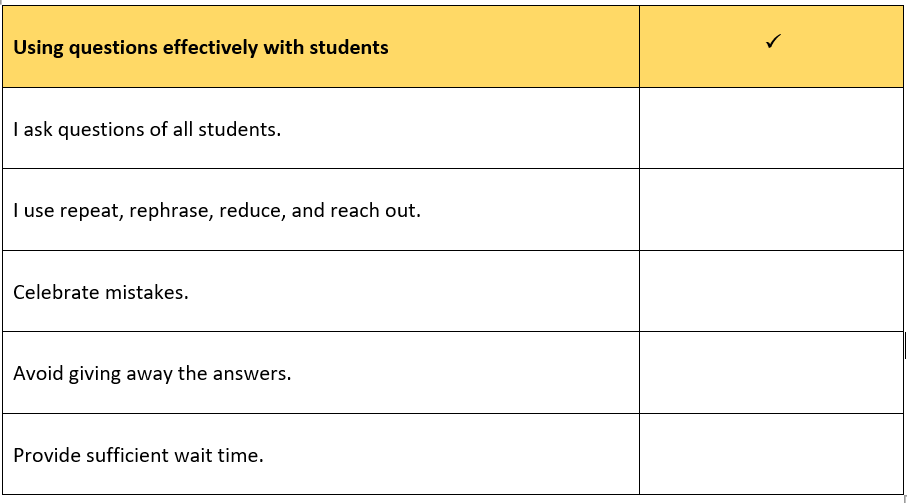Summary:
Effective questions are the right kind of questions for the kind of learning students are to experience.
Hattie Check:
Classroom discussion = 0.82
Teacher-student relationships = 0.72
Questioning = 0.48
What's the point:
Teachers spend 30-50% of their time asking questions. Asking questions that are appropriate for the intended learning increases engagement and learning.
What are the different types of questions?
Type of question
- Open-ended questions have an unlimited number of responses (What guesses can you make about this image?)
- Closed questions have a finite number of responses (What can you see in this image?)
Kind of question
- Opinion questions do not have right or wrong answers and are usually used as a catalyst for conversation (Are you persuaded by the TV commercial? Why? Why not?)
- Right or wrong questions are used to determine whether or not students have understood what has been taught (What does UDHR stand for?)
Level of question
- Knowledge questions prompt students to demonstrate what they can remember (what are the parts of a cell?)
- Skill questions prompt students to apply their knowledge to new situations or settings (How should you multiply fractions?)
- Big idea questions explore the themes, concepts, and content structures that recur through the course (Why is it important to be able to identify and decode propaganda?)
What is the central idea for effective questioning?
- Open learning usually requires open-ended, opinion, and often big idea questions.
- Closed learning usually requires closed, right or wrong, knowledge, and skill questions.
Which questions to use for closed vs open learning
Closed Learning | Question | Open Learning |
Closed | Kind | Open |
Right or wrong | Type | Opinion |
Knowledge or skill | Level | Big Idea |
Many: up to four or more per minute | Number of questions | Few: As few as one to five per lesson |
Jim Knight, ‘The Impact Cycle’ (2018) Corwin Publishing
Checklist:
